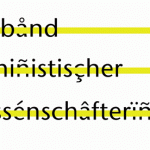Jaarboek voor Vrouwengeschiedenis / The Yearbook of women’s History (Web)
In the year of the Arab Spring, UN Secretary Ban Ki-Moon remarked in his opening address to a UN Roundtable on Gender Equality and Democracy: “It is no coincidence that the revolutionary fervor sweeping North Africa and the Middle East began in Tunisia – and that women played such a role. Tunisia was among the first Arab countries to grant women the right to vote, in the late 1950s. Tunisian women have also made important gains in the professions and parliament. Girls growing up with such role models quite naturally expect to follow suit.” He went on to conclude: “While women’s political participation improves democracy, the reverse is also true: democracy is an incubator for gender equality” (UN Roundtable, 4 May 2011). Such a strong public statement suggesting a self-evident connection between women’s empowerment and democratic politics may be read as an auspicious indication of ways in which feminist aspirations have become acknowledged in high places. However, it also raises questions. Most importantly: does every kind of women’s activism really automatically improve democracy? The 2015 Yearbook of Women’s History will devote itself to this issue. Read more … (Web)


